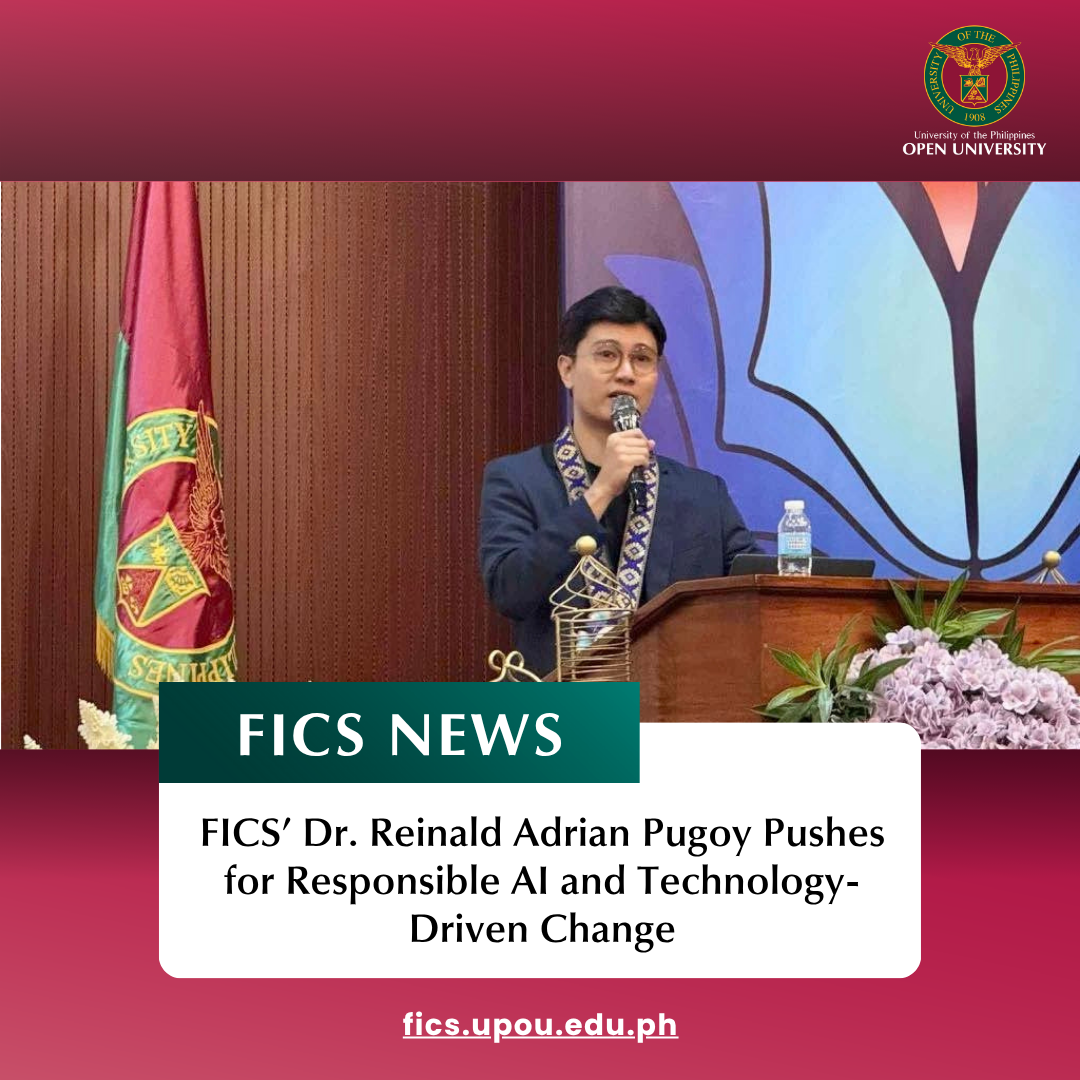Dr. Pugoy at the DALUB-AKLAT: The 2025 UP Librarians Conference
Associate Professor Reinald Adrian Pugoy shared his expertise on AI, digital transformation, and technology-enabled education during a series of talks to various sectors across the Philippines. As a faculty member, researcher, and director of the UPOU Information and Communication Technology (ICTDO), Dr. Pugoy’s work on advancing AI literacy and its responsible application in education was disseminated in ten academic gatherings in the first half of the year. He engaged in conversations among educators, researchers, and public servants on embracing technology ethically and strategically.
AI in Education and Research
Dr. Pugoy’s main research interest revolves around AI and education, and research. As such, he contributed to conversations on the critical and ethical use of AI in teaching and learning. He served as keynote speaker during the 10th National Conference on Social Studies Education at De La Salle Zobel, Ayala Alabang, with “Adopt and Adapt: Navigating the Convergence of AI and Education,” emphasizing the need to balance innovation with integrity by integrating AI thoughtfully, understanding its limits, and guiding students toward ethical, critical use.
In addition, he addressed the members of the Microbiology Consortium of the Philippines, Inc., where he presented his paper entitled “Adopt and Adapt: Recalibrating Education and Research in the Age of AI” during their webinar. He highlighted AI’s potential to transform both teaching and microbiological research. This complemented his previous lecture for the consortium’s 2nd Training for Trainers on Advanced AI Tools for Research and Instruction in Microbiology, where he shared about “Introduction to Artificial Intelligence & Its Theoretical Underpinnings.”
In another engagement, he discussed “Adopt and Adapt: Navigating AI Integration in Schools and Universities” during SEARCA’s Online Learning and Virtual Engagements. He highlighted the need for strategic AI integration and governance as universities respond to the demands of the AI era.
Dr. Pugoy also tackled the theory and history of Natural Language Processing. His talk, held on AI Summit 2 entitled “The NLP Revolution: The Journey from Symbolic Rules to Large Language Models,” traced the rapid evolution of AI language systems and explored their potential applications in research and communication. The summit was hosted by Mapua Malayan Colleges in Laguna.
Technology for Institutional Efficiency and Transformation
Dr. Pugoy believes that technology should serve the best interests of the public sector. In a presentation at the University of the Philippines Enterprise Architecture Workshop entitled “Aiming Higher with AIMS,” he showcased UPOU’s Academic Information Management System (AIMS), an end-to-end platform built for its fully online model that streamlines academic and administrative processes from admission to graduation.
He also shared approaches for integrating technology into public service workflows at two seminars for the National Police Training Institute (NPTI): “Beyond Paperwork: Transforming Administration Through Technology” and “Innovative Tools for Efficient Administration: A Software Solution Seminar.”
Momentum for Broader Education Ecosystems
Dr. Pugoy shared insights with librarians and education policy advocates. As a panel discussant at the Philippine launch of the UNESCO Global Education Monitoring (GEM) Report 2023, he talked about the experiences of UPOU and its contribution to the national discourse on technology-enhanced education. His presentation titled “Strategies & Initiatives in Integrating Technology & Education: The UPOU Experience” was presented to the education policy sector.
He also addressed the DALUB-AKLAT: The 2025 UP Librarians Conference with “Smart Libraries and Transformative Education: Emerging Technologies Shaping the Future of Academic Libraries.” He emphasized the importance of connecting digital innovations such as AI, augmented reality, and virtual reality with the future of library services.
With his engagements, Dr. Pugoy foresees that more conversations on AI will be launched. Moreover, he believes that these conversations on AI will open doors that will harness technology’s role in advancing learning, strengthening governance, and expanding equitable access to knowledge.
Contributed by Reinald Adrian Pugoy | Edited by Roda Tajon

